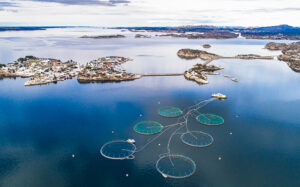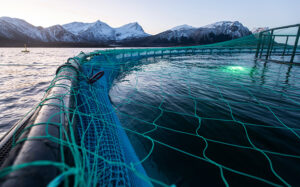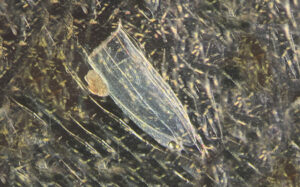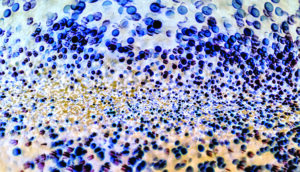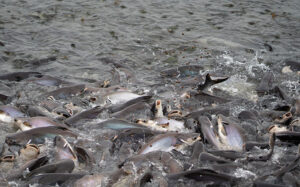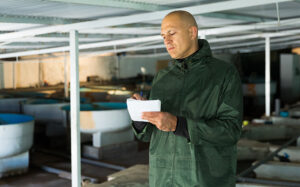Topics
Cage modifications can help manage sea lice problems — but care needed
Sea lice are one of the primary problems affecting Atlantic salmon farming, with severe infestations impacting fish health and performance, and the stress of treatments being linked with the development of other diseases. Changes to the sea cages that salmon are often farmed in offers one solution, according to an expert.
Helping Mediterranean fish farmers quickly identify disease issues
An interview with Emre Berke, DVM, PhD, field technical support associate for PHARMAQ.
Novel sampling reveals microbial changes during gill disease on Irish salmon farm
A non-lethal sampling method combined with cutting-edge molecular analysis has shed new light on microbial interactions in Atlantic salmon gills during a gill disease outbreak.
Vaccine study offers new insight on Norway’s winter ulcer problem
In recent years, the Norwegian aquaculture industry has struggled against the rise of “variant” forms of Moritella viscosa, a bacterium which causes the disease winter ulcer in Atlantic salmon. This has led to concerns about the efficacy of existing vaccines against the pathogen.
Tackling jellyfish blooms affecting farmed fish in the British Isles
Tiny jellyfish have contributed to cases of gill disease in farmed Atlantic salmon in Scotland and Ireland in the past year, but early recognition and maintaining good general gill health are key to reducing the threat.
Using proteomics to understand infectious disease response in aquaculture
By Robert Stewart, PhD candidate at the Roslin Institute
Automatic vaccination in tilapia farming: a new era is coming
By Carlos AG Leal, Professor of Immunology and Fish Health, Veterinary School, Federal University of Minas Gerais-UFMG, Brazil
Stomach-resistant oral vaccines could offer fish farmers easier vaccine administration
Oral vaccines hold a great deal of promise for fish farmers. Easier and quicker to administer than injected vaccines, they are also potentially suitable for fish that are too small for injection vaccination, including larval stages.
Managing health issues in the fast-changing aquaculture industry
An interview with Stian Johnsen, project manager for the World Organization for Animal Health

